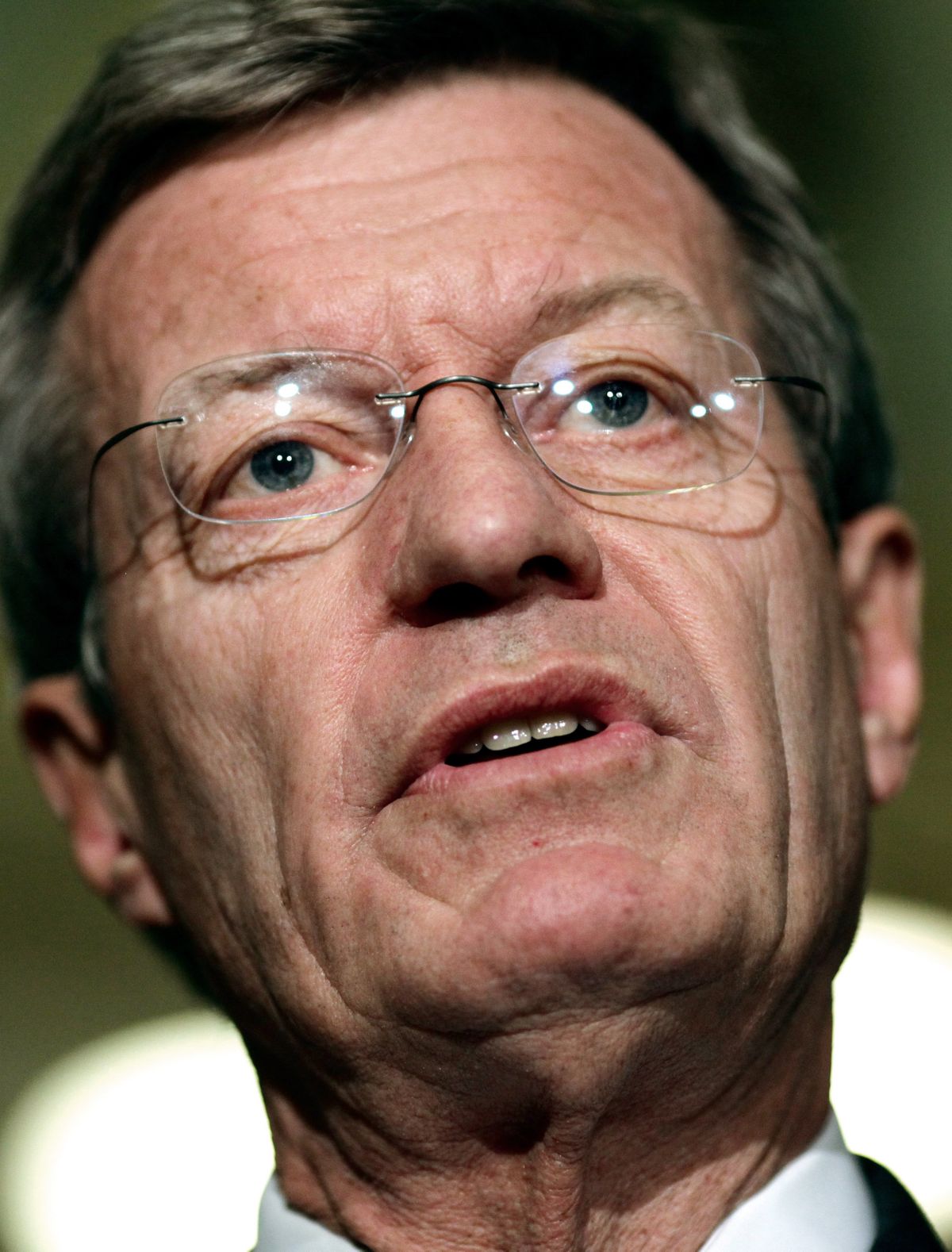Obama open to benefits tax
In reversal, he tells senators it could pay for expanded coverage

WASHINGTON – President Barack Obama, in a pivot from some of his harshest campaign rhetoric, told Democratic senators Tuesday that he is willing to consider taxing employer-sponsored health benefits to help pay for a broad expansion of coverage.
Senate Finance Committee Chairman Max Baucus, D-Mont., said Obama expressed a willingness to consider changing the existing tax exclusion. The decision would probably anger liberal supporters such as labor unions, but such a tax change would raise enormous sums of money as Congress and the White House are struggling to find the estimated $1.2 trillion needed to pay for health care reform over the next decade.
“Yeah, it’s something that he might consider,” Baucus told reporters after the meeting between Obama and Democratic lawmakers. “That was discussed. It’s on the table.” Obama had summoned about two dozen senators to the White House to keep up the pressure to enact a comprehensive health care overhaul this year.
White House officials moved quickly to clarify that taxing the health insurance provided by businesses is not Obama’s first choice, but aides refused to rule out the possibility.
“The president made it clear during the campaign that he has serious concerns about taxing health care benefits, and he has introduced his own revenue proposal, which he reiterated in today’s meeting,” spokesman Reid Cherlin said.
Obama instead urged senators to reconsider his proposal, which would raise federal revenue by reducing itemized deductions such as charitable contributions and mortgage payments for the wealthiest Americans, according to one adviser in the meeting. Obama included that idea in his budget, reporting that it would raise $317 billion over 10 years, a sizable “down payment” on the cost of health care reform. But Congress immediately labeled the proposal a non-starter.
Private-sector businesses spend about $518 billion a year on their workers’ health insurance, benefits that are not taxed. If workers had to pay taxes on their health coverage, it would raise $246 billion in revenue each year, according to the congressional Joint Committee on Taxation.
Health analysts from across the political spectrum have pressed for changing the tax treatment, arguing in part that the exclusion provides the greatest tax relief to high-salaried workers with generous insurance plans.
Last month, Baucus said he did not support eliminating the exclusion but was eyeing a benefit cap. Experts have outlined two likely approaches: taxing health benefits for workers above a certain income level; or taxing benefits over a certain value, perhaps $14,000 a year.
Administration officials meeting with lobbyists in recent days have projected that a benefit cap might generate $35 billion a year, though Finance Committee staff said the number could be much higher.
Nevertheless, the issue represents treacherous politics for Obama, given his attacks on Sen. John McCain, R-Ariz., who advocated a similar approach during the campaign.
“For the first time in American history, he wants to tax your health benefits,” Obama said in September. “Apparently, Senator McCain doesn’t think it’s enough that your health premiums have doubled. He thinks you should have to pay taxes on them, too.”
Strongly desiring to declare a health care victory this year, Obama is now taking a more nuanced approach, aides said. “His style of leadership is to say, let’s not get bogged down; let’s keep moving forward,” said one senior adviser who was in Tuesday’s meeting. “He’s not ruling anybody’s ideas out.”